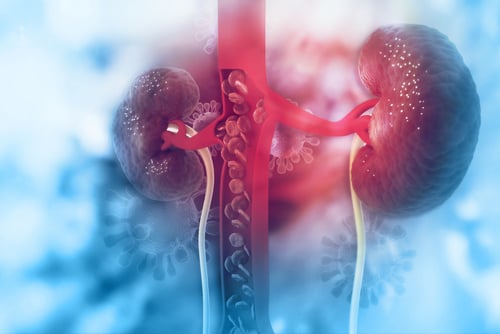Orbsen Therapeutics Limited has announced what it says are encouraging headline interim results from the EU Horizon 2020-funded NEPHSTROM clinical trial for diabetic kidney disease.
NEPHSTROM is a randomized, double-blind, placebo-controlled phase 1/2a, trial evaluating the safety, tolerability and preliminary efficacy of an off-the-shelf allogeneic bone marrow-derived mesenchymal stromal cell immunotherapy, ORBCEL, in adult study subjects with type 2 diabetes and progressive diabetic kidney disease (DKD).
ORBCEL is a proprietary formulation of highly purified immunomodulatory stromal cells. This investigator-sponsored, multi-centre study was led by the Mario Negri Institute for Pharmacological Research IRCCS, in Bergamo, Italy.
Interim results from Orbsen Therapeutics‘ ORBCEL
The safety and tolerability profile of ORBCEL was found to be similar to placebo. There were no treatment-related adverse effects due to the stromal cell infusions observed.
A single infusion of intravenously delivered ORBCEL was associated with statistically significant preservation of kidney function over baseline compared to a placebo treatment over 18 months (study end). Monitored blood markers suggest ORBCEL treatment was associated with evidence of stabilization in the proportion of regulatory T cells in blood, which tended to decline in placebo-treated patients, and by a reduction in inflammatory monocytes.
Enrolment in the second dose level patient cohort was completed late last year and interim results are expected to be available in the second half of 2023.
The consortium is preparing to submit these first-cohort interim results for publication in a peer-reviewed journal.
Orbsen Therapeutics will now seek input from the US Food and Drugs Administration (FDA) and the European Medicines Agency (EMA) for the design of an adaptive phase 2b clinical study that, if successful, could potentially result in the conditional approval of ORBCEL of patients with progressive DKD, a significant unmet medical need where patients progress to end-stage kidney disease despite current standard of care therapy.
DKD affects 30 to 40% of adults living with type 2 diabetes and accounts for about 40% of all people with end-stage kidney disease (kidney failure) and greatly increases the risk for heart and blood vessel disease. An important aspect of DKD is an imbalance between inflammatory and anti-inflammatory immune cells.
Useful treatment
Guiseppe Remuzzi, director of the Mario Negri Institute for Pharmacological Research IRCCS, said: “The current standard of care for DKD patients includes multiple types of drug therapy, such as renin-angiotensin-aldosterone system inhibitors and the more recently approved drug class known as sodium-glucose transporter 2 (SGLT2) inhibitors, which have a proven ability to slow the decline of kidney function.
“However, these medication classes are not tolerated by all patients and are not always effective to fully halt or reverse the progression of kidney injury in DKD. ORBCEL cell therapy might be particularly useful as an additional treatment in patients with rapidly progressive kidney disease caused by diabetes.”
Stephen Elliman, chief scientific officer of Orbsen Therapeutics, said: “Our goal with ORBCEL is to resolve systemic inflammation and improve kidney function, so that these patients will not require dialysis or a kidney transplant. The growing burden of DKD and its impact on healthcare make this an important disease target for Orbsen and our technology.”





